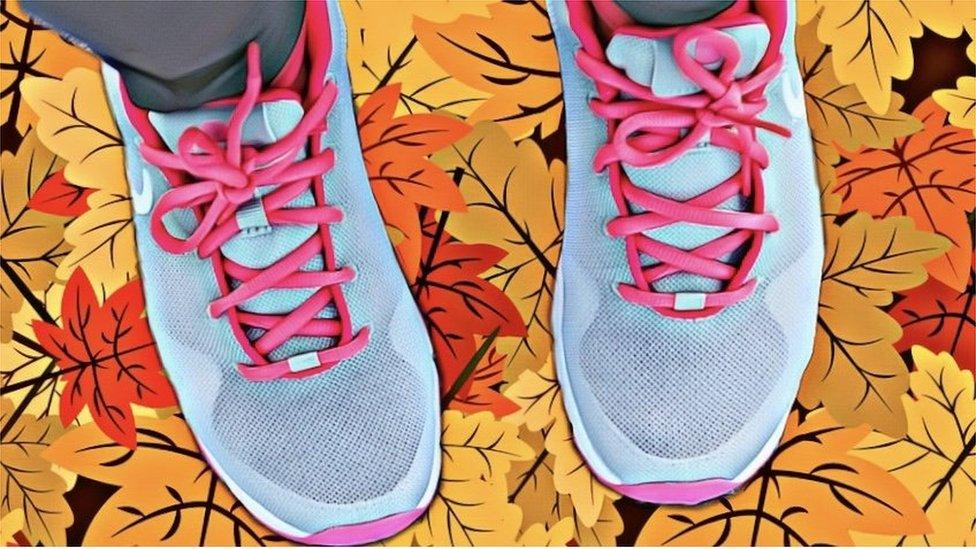Coronavirus: Pupils and teachers at secondary schools in England to wear face masks
- Published
- comments
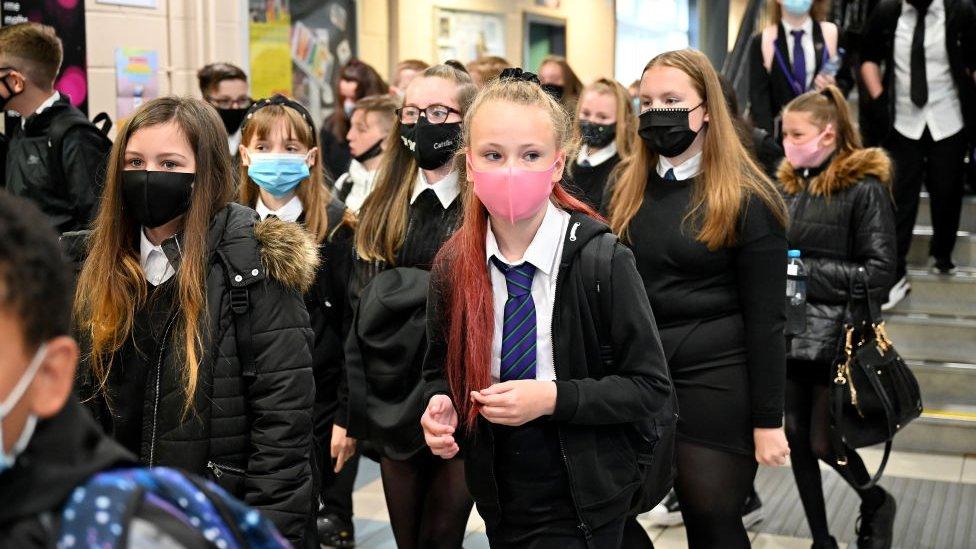
All pupils and teachers at secondary schools in England must wear face masks to help slow the spread of coronavirus.
It is part of new government rules which says that face coverings should be worn by staff and students in year 7 and above in communal spaces - outside of classrooms - and on school transport from Thursday 5th November.
This was already the case in areas where the local alert level was 'high' and 'very high'. These levels have now been replaced by a second national lockdown which will apply to everyone in England.
Children and young people with special educational needs or disabilities might be able to not wear a mask, depending on their need.
What are the new rules in England?
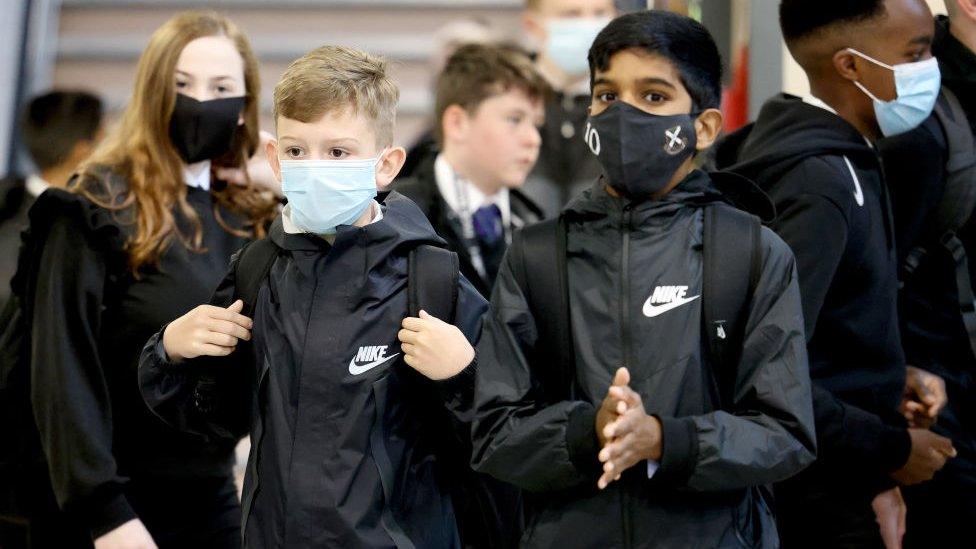
The new guidance, issued by the Department for Education on Wednesday afternoon, says "face coverings should be worn by adults and children aged 11 and above when moving around the premises, outside of classrooms or activity rooms, such as in corridors and communal areas where social distancing cannot easily be maintained", and the same applies to further education colleges.
Paul Whiteman, general secretary of the NAHT school leaders' union, criticised the move and said the lockdown was announced four days ago but schools "have had to wait until now to find out how it affects them".
He went on to say that "it is ridiculous that this new guidance has landed on school leaders' desks less than 24 hours before the start of the national lockdown.
"There is very little in the guidance that could not have been communicated with schools 72 hours ago."
The government has said that schools should put the new guidelines in place as soon as possible but have until Monday 9 November if needed.
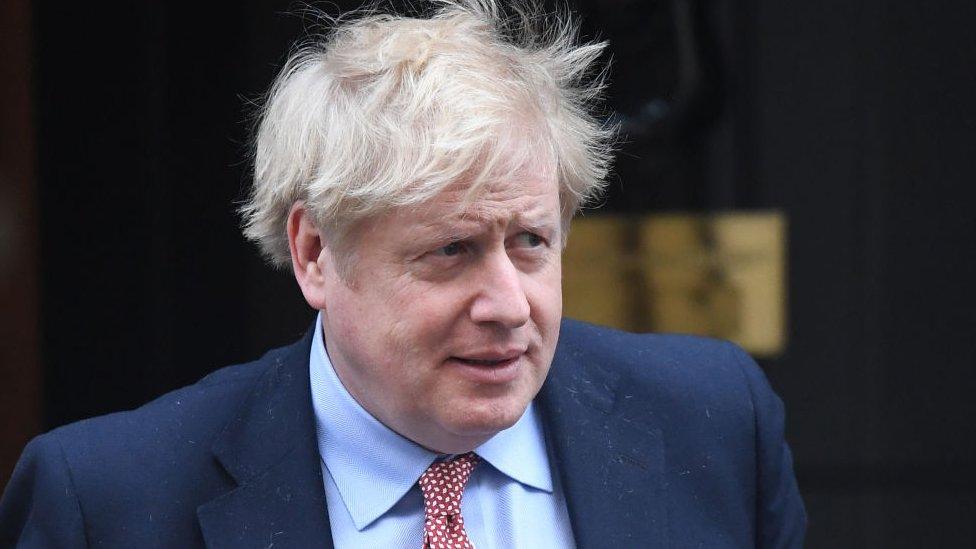
Prime minister Boris Johnson
In August, the prime minister Boris Johnson went back on his decision that children in England should not wear face masks in secondary school.
Face coverings were made mandatory in communal areas and corridors for children in towns and cities that were subject to stricter coronavirus restrictions.
Outside those areas, it was up to the head teacher to decide.
What's the situation in Scottish schools?
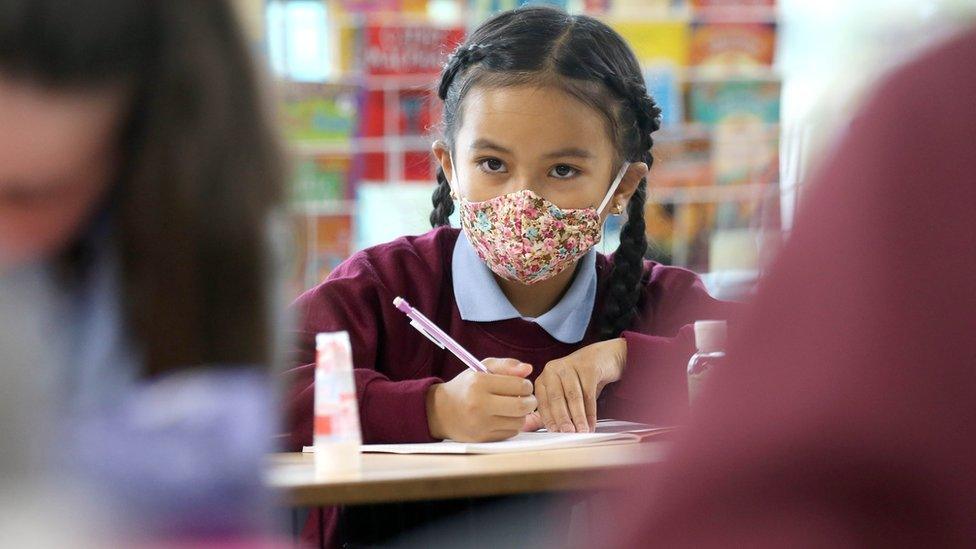
Across all of Scotland's coronavirus alert levels, face coverings should be worn by adults at all times where they cannot keep two metres from other adults and/or children and young people in primary and secondary schools.
Face coverings should also be worn by parents and other visitors to any school site (whether entering the building or otherwise), including parents at drop-off and pick-up.
In areas in Levels 3 and 4 (places with high levels of coronavirus restrictions), pupils in fourth to sixth year (14 to 17-year-olds) and their teachers, should wear face coverings in classrooms, as well as when they are moving around the school and in communal areas.
What's the situation in Northern Irish schools?
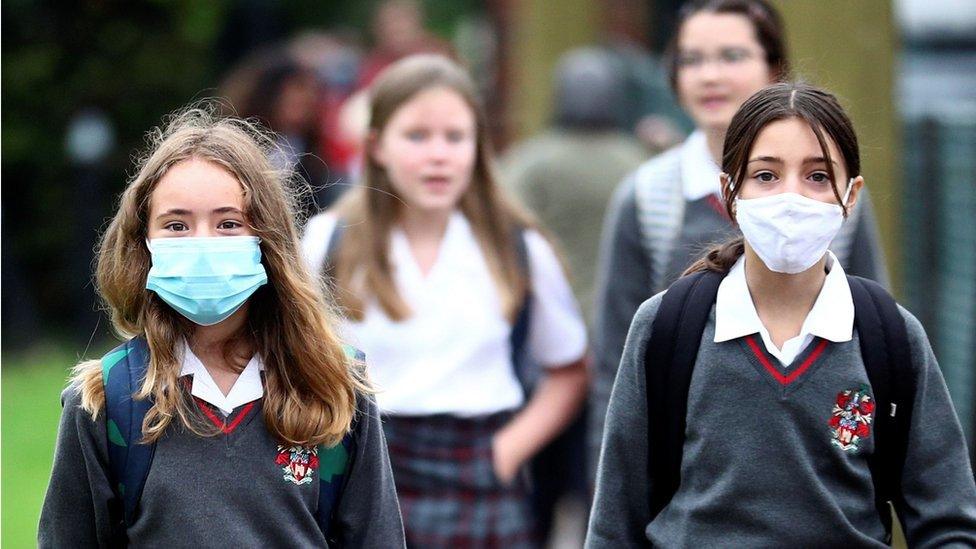
From 29 October 2020, it has been mandatory for all secondary school children to wear a face covering on all home to school transport services and on public transport.
Masks are not compulsory inside schools but people are free to wear masks insides schools if they wish.
Northern Ireland's Education Minister Peter Weir said: "Face coverings are not recommended as being compulsory for routine use in education settings. However, staff and pupils may wish to use them during the routine school day and this is acceptable."
What's the situation in Welsh schools?
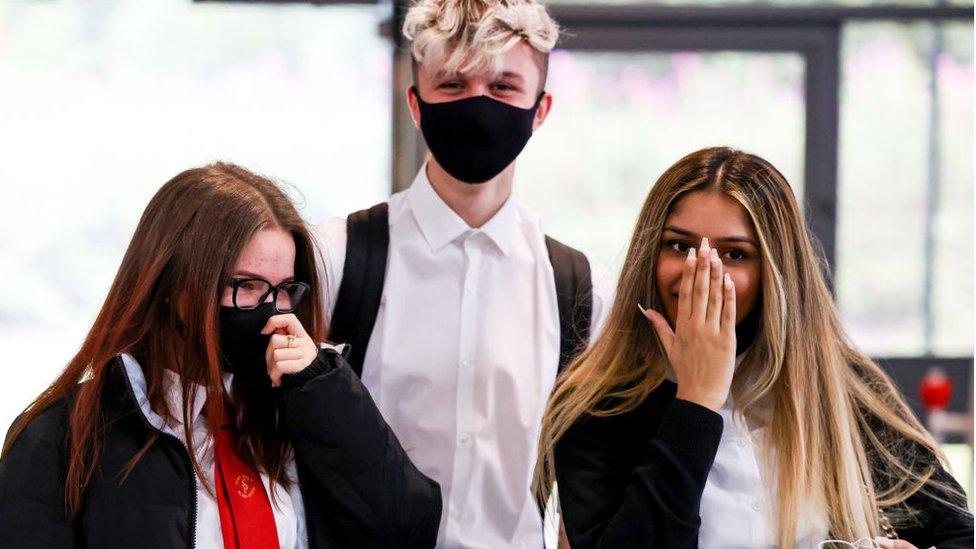
Wales is currently in a two-week national lockdown, which started on 23 October and will finish on 9 November.
Primary schools reopened after half term on 2 November, but only years 7 and 8 and those taking exams in secondary school went back then too - all other secondary school year groups will have to do school work from home for an extra week.
The current advice from the Chief Medical Officer for Wales is that face coverings are recommended for all members of the public over 11 years in indoor settings in which social distancing cannot be maintained, including schools and school transport.
- Published5 November 2020
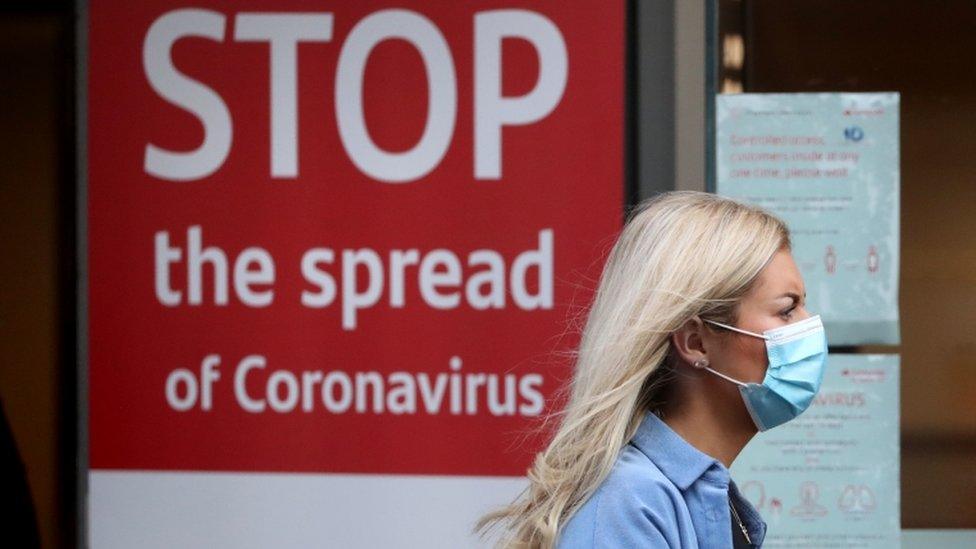
- Published5 November 2020
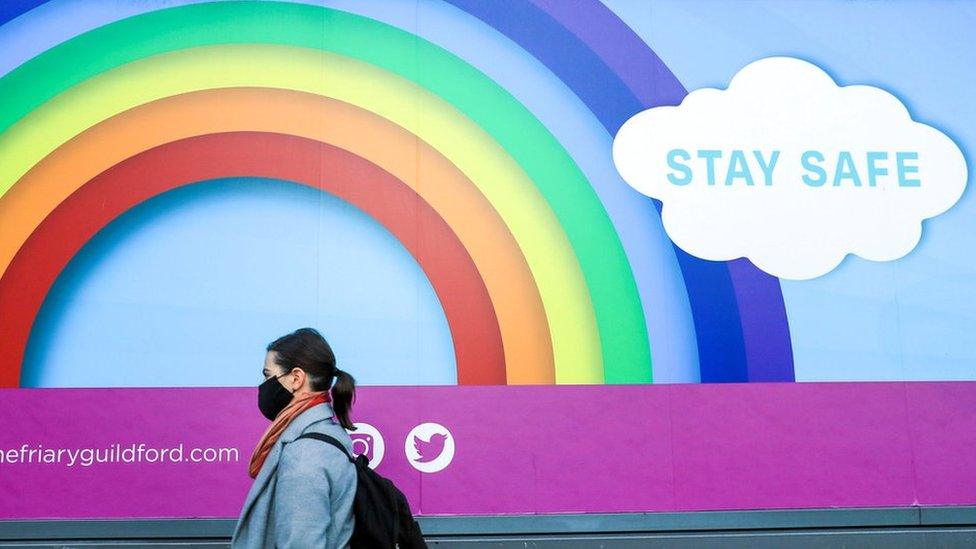
- Published5 November 2020
